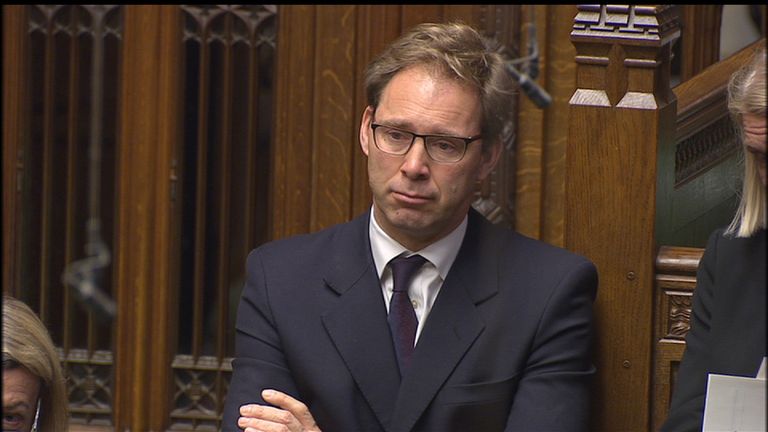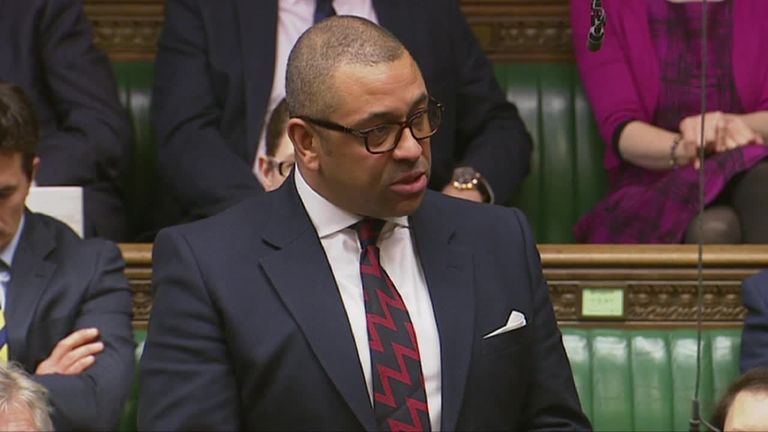Westminster terror attack: When the moment came, the PM spoke for a nation
As she faced her first terror crisis as PM, Theresa May spoke for a nation - and won respect from across the political spectrum.
Thursday 23 March 2017 16:20, UK
In the wee hours (UK time) the Prime Minister received some praise, straight out of the Oval Office.
Whether or not Theresa May welcomed the President's approbation, Mr Trump's sentiment was echoed by the House of Commons this morning.
::
MP after MP lavished praise on Mrs May for her handling of the crisis and in embodying and articulating the feeling of revulsion and defiance felt across the country.
Praise came from familiar and unfamiliar quarters. Philip Davies, Conservative MP for Shipley, said of her performance: "She has shown why she is proving to be a superb Prime Minister, and why we are proud to have her as our Prime Minister."
Tim Farron, the Liberal Democrat leader, thanked Mrs May for her words, saying "she really did speak for us all".
Former Labour leader Ed Miliband said: "In her tone and in substance, she has spoken for the whole country and I commend her for it."
Former Labour Home Secretary Alan Johnson congratulated the PM for dealing with the crisis "in a calm and assured way".
In some ways, this isn't unusual. The House of Commons, much like the nation overall, comes together in times of crisis. Solemn speeches about national solidarity are normally par for the course.
But I'm struck by the number of people in Westminster and beyond who felt especially assured that this particular Prime Minister was in charge last night.
This might have been her first major domestic terrorist crisis she has faced as Prime Minister but remember that Theresa May assumed leadership better prepared to deal with terrorist incidents than any of her immediate predecessors.
::
After over six years as home secretary, she far surpassed the experience of all of her modern predecessors, especially Tony Blair and David Cameron, both of whom became prime minister as political ingenues, with no other experience of ministerial office.
May by contrast has been with involved with every incident since 2010.
As home secretary she occasionally chaired the Government's emergency committee, COBRA. She is intimately familiar with the military/security apparatus of the United Kingdom.
Of course, competence in dealing with such occasions is no guarantee of wider political success.
Gordon Brown, who had to deal with a series of terrorist attacks just days into the job in 2007, was widely lauded only to hit polling depths a few months later.
If any questions arise over Government or security incompetence in the coming days then expect the PM's aura to be dented.
But also never forget that Westminster is a village. Although both sides are two-swords' lengths apart in the chamber and the taunts of the house ring loud, there are many friendships across the parties and with the many staff who work across the parliamentary estate.
Any terrorist attack on British soil would bring the Commons together but this felt deeply personal. It was an attack on Parliament directly, at its most vulnerable point.
Terrorism, so often talked about in these walls, came home and took one of the Parliament's own.
In that way the PM was speaking not only as leader of the country but as the representative and leader of parliamentarians overall.
Which perhaps goes some way to explain why, for once, all 650 MPs felt that the Prime Minister was speaking for them.






